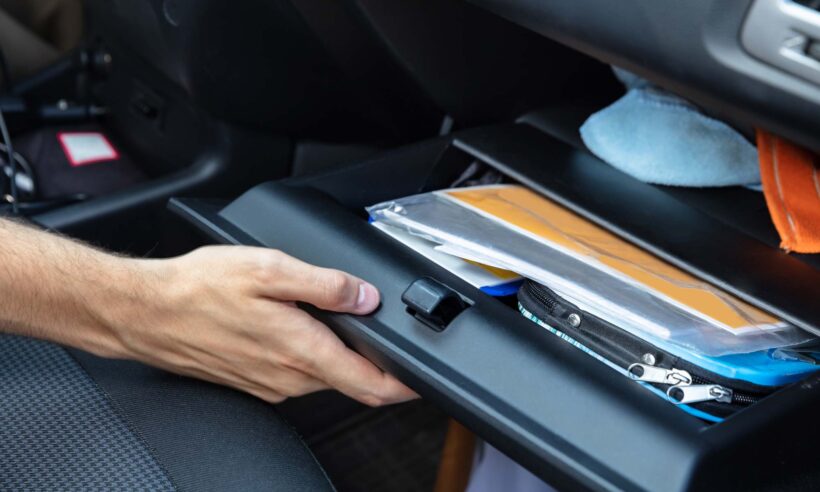Selling your vehicle can be a rewarding experience, whether you’re upgrading to a new model or simply looking to streamline your transportation needs. However, preparing your car for sale involves more than just putting a “for sale” sign in the window. Taking the time to properly prepare your vehicle can help you secure a better price and ensure a smoother transaction. Here are five essential steps to take before selling your vehicle.
1. Clean and Detail Your Car

First impressions are crucial when selling a car, so presenting your vehicle in its best possible condition is essential. Begin by giving your car a comprehensive cleaning, both inside and out. Start with the exterior: wash the car thoroughly to remove any dirt, grime, or road salt. Use a high-quality car shampoo and a microfiber mitt to avoid scratches. Once cleaned, apply a coat of wax to restore the vehicle’s shine and protect the paintwork. Pay particular attention to details such as cleaning the wheels, tires, and windows, as these areas can significantly enhance the car’s overall appearance.
For the interior, clean and vacuum every surface, including carpets, upholstery, and the dashboard. Use specialized cleaning products suitable for different materials such as leather or fabric. Don’t forget to clean hard-to-reach areas like under the seats and in the crevices. Remove all personal items and clutter to present a clean and spacious environment to potential buyers. This not only makes the car look more inviting but also helps buyers visualize their own belongings in the space. Consider investing in professional detailing services for a more thorough clean. Professional detailers can remove stubborn stains and odors, and their expertise can significantly enhance the car’s interior and exterior, making it more attractive to potential buyers. A well-detailed car reflects the care and attention you’ve given it, which can positively influence a buyer’s decision.
2. Address Mechanical Issues
Before listing your vehicle for sale, it’s important to address any mechanical issues or maintenance needs. Arrange for a comprehensive inspection by a qualified mechanic to identify and repair any underlying problems. This inspection should cover all critical systems, including the engine, transmission, brakes, and suspension. Ensure that all fluid levels are topped up, and replace worn-out parts such as brake pads, tires, and wiper blades. Address any warning lights on the dashboard, as these can be a red flag for potential buyers.
Fixing mechanical issues not only improves the reliability and safety of your vehicle but also reassures potential buyers that the car has been well-maintained. A vehicle in good working condition is more likely to command a higher price and sell more quickly. Keep detailed records of any repairs and maintenance performed, as this documentation can help demonstrate the vehicle’s history and upkeep to interested buyers. Providing receipts and inspection reports shows that you’ve taken good care of the car and can help build trust with potential buyers. Additionally, if there are any outstanding recalls, ensure that these have been addressed and include proof of resolution. This proactive approach can prevent potential concerns from arising during the sales process and can streamline the transfer of ownership.
3. Gather and Organize Documentation
Having all necessary documentation ready is essential when selling your vehicle. Gather all relevant documents such as the vehicle title (pink slip), registration, and any maintenance records. If the car is still under warranty or has an existing service plan, include those documents as well. A complete and organized set of paperwork demonstrates transparency and gives buyers confidence in the vehicle’s history and condition.
Start by ensuring you have the vehicle title, as this proves ownership and is required to transfer the vehicle to the new owner. Check that your registration is up to date and that you have copies of any relevant inspection certificates. Maintenance records are particularly important as they provide a history of the vehicle’s upkeep. These records can include oil change receipts, tire rotation schedules, and records of any significant repairs. If you’ve kept a logbook of all services and repairs, include that as well.
If there are any outstanding recalls or issues that have been addressed, provide documentation showing that these issues have been resolved. This proactive approach can prevent potential concerns from arising during the sales process and can streamline the transfer of ownership. Additionally, having a vehicle history report available can further reassure buyers of the car’s condition. By being well-prepared with all necessary documentation, you can facilitate a smoother and quicker sales process, making it easier for the buyer to make a decision and complete the purchase.
4. Enhance Curb Appeal
Similar to preparing a house for sale, enhancing the curb appeal of your vehicle can make a significant difference in attracting potential buyers. Consider minor cosmetic improvements that can add value without breaking the bank. This may include touching up paint chips, replacing worn-out trim or decals, and repairing minor dents or scratches.
For example, consider mobile dent repair services if your vehicle has noticeable dents or dings that detract from its appearance. These services can often be performed on-site and quickly restore the exterior of your car to like-new condition. Addressing cosmetic imperfections shows that you’ve taken care of your vehicle and can increase its appeal to buyers.
5. Determine the Right Selling Price
Setting the right price is crucial for attracting serious buyers and maximizing your vehicle’s value. Research the current market value of your make and model using online resources, such as vehicle valuation tools and classified ads. Consider factors such as mileage, condition, age, and local market demand when determining your asking price.
Be realistic about the condition of your vehicle and compare it with similar listings to gauge competitiveness. If you’re unsure about pricing, consider getting a professional appraisal or consulting with a trusted automotive expert. A well-priced vehicle is more likely to attract potential buyers and facilitate a faster sale.
Conclusion
Preparing your vehicle for sale requires careful attention to detail and proactive steps to maximize its appeal and value. By cleaning and detailing your car, addressing mechanical issues, gathering documentation, enhancing curb appeal, and determining the right selling price, you can streamline the selling process and achieve a successful sale.
Whether you’re selling privately or trading in at a dealership, presenting your vehicle in its best condition and providing transparent information will help you attract confident buyers and secure a fair price. Taking these steps ensures that both you and the buyer can proceed with confidence, knowing that the transaction is based on a well-maintained and properly prepared vehicle.



